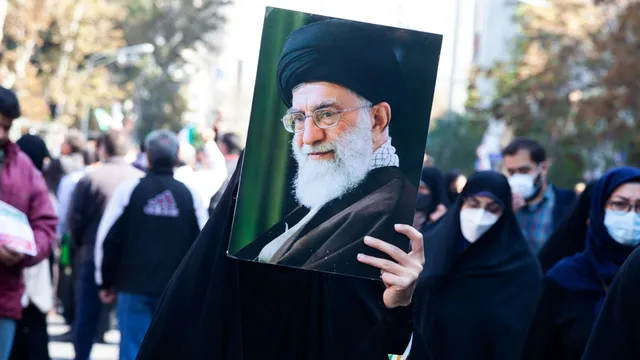
Iran postpones crucial nuclear talks with the US
2025-05-01 15:55- Negotiations between Iran and the United States over its nuclear program were scheduled for this weekend but have been postponed.
- Iran’s Foreign Minister stated commitment to reaching a fair agreement, while U.S. officials mentioned that America never confirmed participation in the talks.
- The postponement reflects ongoing tensions and complex geopolitical dynamics surrounding Iran’s nuclear ambitions.
Express your sentiment!
Insights
Iran announced that negotiations concerning its advancing nuclear program with the United States have been postponed. Initially scheduled for Saturday in Rome, this decision was communicated by Oman’s Foreign Minister Badr al-Busaidi, who stated it was rescheduled for logistical reasons. While Iranian officials expressed commitment to reach a fair agreement, U.S. State Department clarified that America had never confirmed participation in this upcoming negotiation round. Furthermore, both countries have engaged in discussions previously, with U.S. Envoy Steve Witkoff leading the talks, which sought to limit Iran’s nuclear ambitions in exchange for sanctions relief. The backdrop of these negotiations includes heightened tensions following America's withdrawal from the Joint Comprehensive Plan of Action (JCPOA) in 2018, which had initially aimed to curtail Iran's nuclear program. President Donald Trump has continuously threatened military action against Iran should talks falter, reflecting the precarious balance of power. Iranian officials are wary of U.S. intentions and skepticism remains regarding actual U.S. commitment to military interventions. The negotiations involve key European nations, with Iran reaching out to Britain, France, and Germany for further discussion before addressing the U.S. This strategic outreach indicates Tehran’s desire to isolate the U.S. from its allies, emphasizing the complexity of the geopolitical landscape. The stakes are high, with Iran warning it could pursue nuclear weapons if negotiations do not yield favorable results. Overall, the postponement underscores the fragility of such discussions and the various influences that can affect diplomatic engagements. With both parties under domestic pressures, including economic challenges and public dissent, negotiating a resolution that satisfies all sides remains a significant challenge amid an uncertain international environment.
Contexts
The history of Iran's nuclear program has been marked by significant developments and geopolitical impacts that continue to resonate in international relations. Initiated in the 1950s under the Shah, the program aimed to harness nuclear energy for peaceful purposes, facilitated by U.S. assistance through the Atoms for Peace program. However, the 1979 Islamic Revolution dramatically shifted the trajectory of Iran's nuclear ambitions, leading to international concerns over potential military dimensions. The program's evolution has been characterized by a series of opaque developments, secret facilities, and ambiguous intentions, raising suspicions among Western nations, particularly the United States and its allies regarding Iran's nuclear capabilities and aspirations. The turning point for Iran's nuclear program occurred in the early 2000s when revelations of clandestine activities came to light, notably the Natanz enrichment facility. The subsequent discovery led to increased scrutiny and condemnation from the international community, culminating in a series of United Nations Security Council resolutions that imposed economic sanctions aimed at curbing Iran's nuclear ambitions. Iran's insistence on the right to enrich uranium for peaceful purposes was met with skepticism and led to a deepening rift between Iran and the West, as diplomatic efforts to negotiate limitations on its nuclear program vacillated between engagement and confrontation. The landmark Joint Comprehensive Plan of Action (JCPOA), reached in 2015, sought to balance Iran’s right to nuclear energy against concerns of proliferation. The agreement, which involved Iran and the P5+1 nations, provided for unprecedented scrutiny of Iran’s nuclear activities in exchange for the lifting of extensive economic sanctions. However, the deal was heavily contested domestically within Iran and in the U.S., leading to its eventual abandonment by President Donald Trump in 2018. This withdrawal reignited tensions and set the stage for escalating hostilities, including increased uranium enrichment activities by Iran and widespread condemnation from the international community. As of 2025, Iran's nuclear program remains highly contentious, with the potential ramifications for regional stability and security in the Middle East. The ongoing challenges of containment and diplomacy continue to shape the geopolitical landscape, with Iran asserting its rights as a sovereign nation while navigating the pressures of international scrutiny and sanctions. The future of Iran's nuclear ambitions depends on the balance of domestic politics within Iran, the responses from major powers, and the evolving perceptions of threat in a complex security environment.